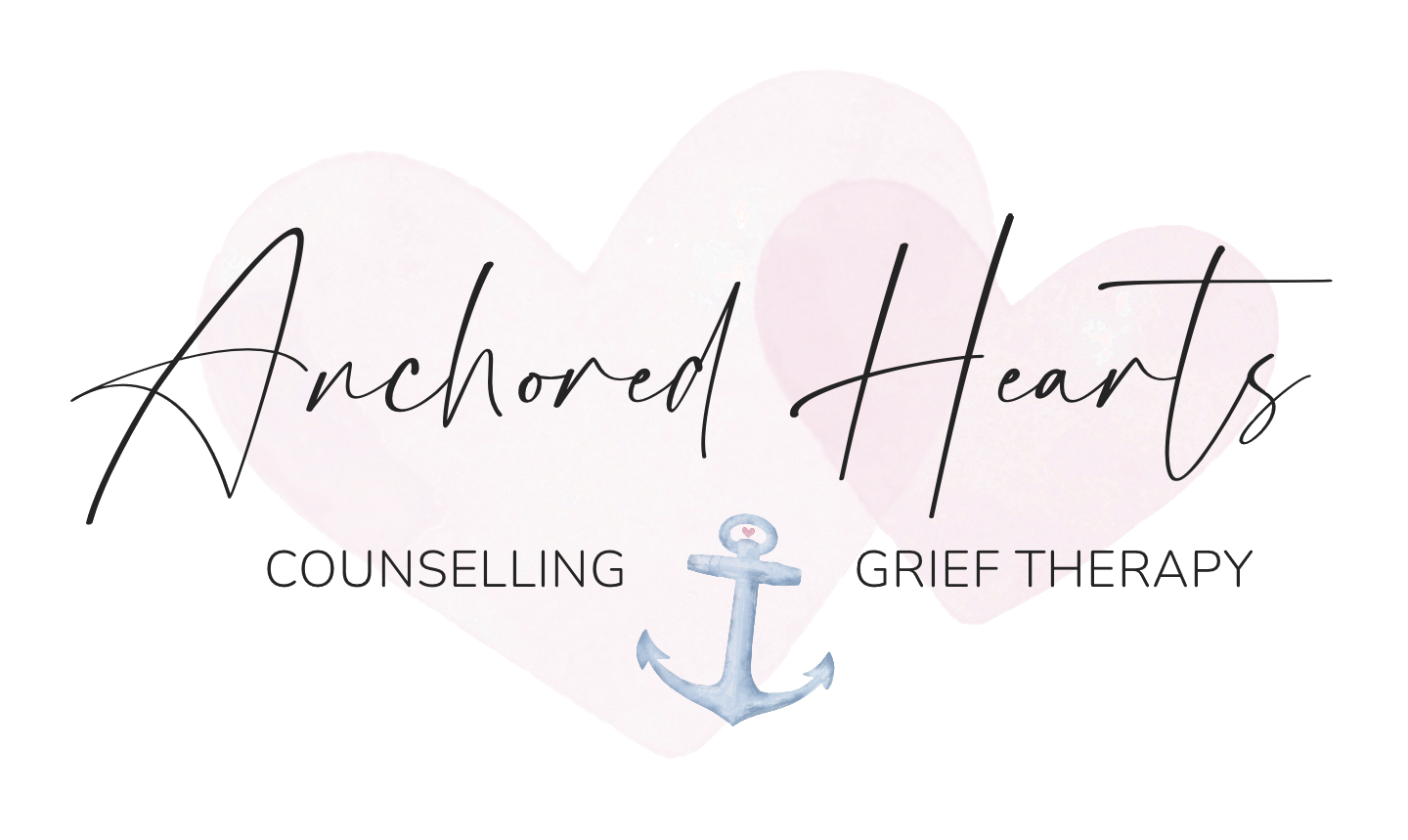
Blog
Have you ever caught yourself laughing, smiling, or having a good day after loss—only to feel a wave of guilt wash over you?
Maybe you noticed you weren’t spending every moment thinking about your person, or you sought out distractions from the heaviness of grief.
In my own grief journey, moments of lightness sometimes felt like betrayal.How could I allow myself to feel joy when my person’s life was cut short?
It is important to know that it is a common experience in grief to feel guilty for not being immersed in sadness all the time.
“When are you going to get over it?” That was the question someone asked me—just two weeks after a significant and traumatic loss. I was too stunned to answer. I don’t remember how I responded, but I’ll never forget how wrong that question felt.
This moment reflects a common misunderstanding about grief: that there’s a set timeline for “moving on.” That eventually, we should reach acceptance and stop expressing pain or sadness.
The five stages were originally intended to describe the emotional experience of people facing their own death. Over time, the model became widely applied to people grieving the loss of others. But it was never meant to be a universal roadmap for grief.
The last time I checked, the Asian Parent Stories subreddit had over 118,000 members - this speaks volumes about the need for safe spaces—places where people can share their stories and feel understood.
It doesn’t take long scrolling through the posts to notice stories of frustration, hurt, sadness, anger, pain, and longing. As an Asian therapist, I often hear similar themes echoed in the therapy room. And beneath all of it—a deep desire to feel seen and valued.
If you grew up in a traditional Asian Family and/or an Asian family with complex dynamics, some of what I share here might resonate.
Since I was a child, I have asked questions about death. I’ve always been a deep thinker — some might say an old soul. I’ve never known a time when I wasn’t aware that death could come at any moment.
Maybe you’ve felt something similar — that quiet, uneasy knowing in your daily life, alongside the love you carry for those around you. Or maybe you’re carrying grief as you care for a significant person in your life, in their final days. This experience of grieving before a death occurs can feel confusing and complex — it is called anticipatory grief.
I’ve sat with many who carry the quiet weight of ‘what ifs’ - these lingering thoughts haunt the heart after loss.” Maybe you're carrying some of these too.
Though guilt and regret often come together, they’re not the same. In this blog post, we share about the difference between guilt and regret, and tips on coping with guilt and regret.
It is inevitable that others will disappoint you from time to time. This is bound to happen because no one and no relationship is perfect. However, knowing this does not take away the sting of disappointment when it happens. What you do to respond to disappointment when it comes your way impacts the health of your relationship to yourself and others.
In this blog, we share about 8 tips on coping with disappointment when people let you down.
For people who are grieving, the holiday season can be the most dreaded time of the year. If you are grieving a loss – whether it be a death of your person and/or pet, a non-death/living loss such as a an estranged relationship, a breakup, a divorce or fertility challenges, you might find yourself wishing that you can skip the holiday season and New Year celebrations. In this blog, we share about 7 ways to get through difficult moments during the holiday season.
The idea that a person should always have a positive mindset regardless of one’s life circumstances is a prevalent message in today’s society. The pressure to be positive no matter what is known as Toxic Positivity and can be harmful to a person - while there are benefits to being optimistic, toxic positivity resists all difficult emotions in place of a cheerful and often falsely-positive façade.
Partners may use different words and express their distress differently. However, they are oftentimes asking the same questions, “Are you there for me? Do I matter to you? Will you come when I need you, when I call? In other words, they are yearning for emotional responsiveness.
Dr. Sue Johnson, marriage and family therapist who extensively researched attachment-based therapy, Emotionally Focused Therapy (a therapy she developed more than 30 years ago), found that emotional responsiveness is the key to lasting love and secure connections.
Many hours and years of our lives are devoted to working – on top of work, we juggle our personal lives. It is challenging to ensure work-life balance. This is all the more a challenge if commuting to and from work takes up a portion of our day. With the reality of work taking up a large part of our lives, it is vital that reflect on what sustainable work looks like. It is imperative that we prevent burnout and take time to recover from burnout if we are experiencing burnout.
Mother’s Day and the days leading up to it can be hard for so many reasons. For many, this day is one that they dread instead of anticipate. This day can feel isolating when you are grieving a loss, whether it be a non-death or death loss – each loss is unique and sometimes this contributes to feelings of loneliness. It is our hope that this blog post validates your pain and lets you know that you are not alone in this. We see you and feel with you as you grapple with the range of emotions that you may be feeling this Mother’s Day weekend. In this blog, we share about the different types of grief and loss and ways you can cope with grief on the days leading up to Mother’s Day and on this day.
4 Ways to Deal with Burnout
Many hours and years of our lives are devoted to working – on top of work, we juggle our personal lives. It is challenging to ensure work-life balance. This is all the more a challenge if commuting to and from work takes up a portion of our day. With the reality of work taking up a large part of our lives, it is vital that reflect on what sustainable work looks like. It is imperative that we prevent burnout and take time to recover from burnout if we are experiencing burnout.












It is hard enough to grieve one loss and the death of one person. When you experience multiple losses, grief is experienced at a whole other level. You may be asking yourself, ‘How do I even begin grieving these losses?” A sense of confusion may arise in the process of disentangling the multiple losses – picture a large tangled ball of grief with many threads to untangle. It is no wonder that it can feel like a complex endeavour to cope with cumulative grief.